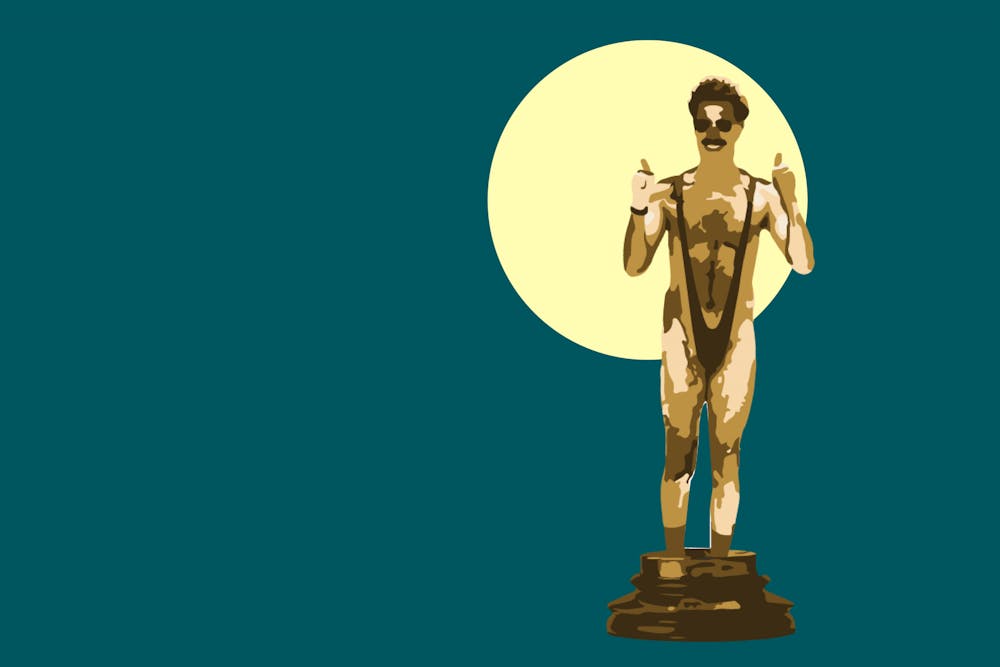Jewish representation in entertainment is a slippery slope. Religious rituals are often portrayed inaccurately, stereotypes are perpetuated, and values are misconstrued. Every once in a while, though, a series or movie comes along that highlights the triumphs and talents of the Jewish community. The upcoming Oscars shine the spotlight on a handful of Jewish icons, in the wake of several antisemitic 'jokes' that recently aired in popular shows.
In a February Saturday Night Live “Weekend Update," co–anchor and co–head writer Michael Che joked about Israel’s vaccination rollout: “Israel is reporting that they vaccinated half of their population, and I’m going to guess it’s the Jewish half.”
It’s true that Israel, though vaccinating its citizens at a rapid rate since December, has left Palestinians from the West Bank and Gaza in the dust. Only in the last month or so has Israel begun to provide vaccines to Palestinian workers. However, the whole truth is that Israeli citizens, of all religions and ethnicities, have been able to get vaccinated. Che’s joke, in poor taste, conflates antisemitic ideas with criticism of Israeli policy. If he truly wanted to point at the disparity between Israeli and Palestinian vaccine access, he should’ve taken that one back to the drawing board.
Whether or not you find Che’s comment offensive, there’s no way around the incident on NBC’s medical drama series Nurses. In an episode that has since been pulled from air and screening platforms, an Orthodox patient is admitted to the hospital after an accident. The nurse informs him and his father that he’ll require a bone graft. In horror, his father realizes that this will come from “a dead goyim leg—from anyone. An Arab, a woman …”
The entire scene is an inaccurate portrayal of Orthodox Jews and their values, which is already enough to spark outrage. To add insult to injury, the patient’s name is Israel. Like Che’s joke, Nurses intertwines an antisemitic trope with anti–Israel sentiment, and demonizes the State of Israel by name association. It’s not a good look for NBC, and an insult to the Orthodox Jewish community.
The 2021 Oscar nominations came out shortly after the two incidents, and represent a more positive turn of events for Jewish representation. Mank, the black and white biopic of Jewish screenwriter Herman Mankiewicz available for streaming on Netflix, dominates the nominations with ten potential awards. Directed by David Fincher, the film stars Gary Oldman as Mankiewicz as he rushes to complete Citizen Kane. Among Mank’s nominations are those for Best Director, Best Actor, Best Supporting Actress, Best Cinematography, Best Sound, and the ever–coveted Best Picture.
Everyone’s favorite Kazakh reporter, Borat, aka Sacha Baron Cohen, has also gained recognition at the Academy Awards. Cohen's hysterical film Borat Subsequent Moviefilm is nominated for Best Adapted Screenplay. However, in a role that proves he can do much more than comedy, Cohen is also nominated for best supporting actor as Jewish activist Abbie Hoffman in The Trial of the Chicago 7. The film itself has six total nominations, including Best Original Screenplay—thanks to Jewish writer and director Aaron Sorkin—and Best Picture.
The spotlight is also shining on another Jewish activist: Judy Heumann. Heumann plays herself in the Best Documentary Feature–nominated Crip Camp, which follows the campers and counselors of Camp Jened in the summer of 1971 as they become activists for the disability rights movement. This nomination is a milestone for the disabled community, and Heumann hopes the Oscars will continue to be accessible and inclusive.
Though Sophia Loren’s Italian Holocaust film The Life Ahead received no nominations for its acting or screenplay, Diane Warren’s original song “Io Sì (Seen)” is up for a potential award. This marks the Jewish songwriter’s 12th Best Original Song nomination. She won a Golden Globe in February, though she has yet to bring home an Oscar.
The Best Live Action Short Film nominees feature both an Israeli film and a Palestinian one. White Eye is based on a true story from the life of Israeli writer and director Tomer Shushan. He wrote the entire script in about 40 minutes just after his bike was stolen. In the film, protagonist Omer sees his stolen bike outside a factory and calls the cops on African migrant worker Yunes, but the situation spirals beyond Omer’s control. White Eye demonstrates the challenges faced by African immigrants in Tel Aviv.
Palestinian British filmmaker Farah Nabulsi’s The Present tells the story of a father navigating Israeli checkpoints with his daughter by his side, just to buy a gift for his wife. The storyline was inspired by her own trips to Palestine as a child to visit family, and then going back as an adult and visiting checkpoints herself.
Each nominated film artistically shares struggles faced by many, painting a greater picture of life in the Middle East. The fact that these two shorts are competing next to each other, recognized equally, is a small but significant stride toward listening to both sides of the story. Perhaps this would make a better joke for the next segment of “Weekend Update.”
Though it's heartening to see so much Jewish representation at the Oscars, awards shows are merely the surface of the greater film and entertainment industry. Inclusivity and diversity, especially in the grand scheme, require consistent effort from both the storytellers and the audience. Just because this year's Academy Awards have taken necessary forward–facing steps doesn't mean we can be complacent about representation in the future. However, for right now, we should watch, celebrate, and support these films and their crews.







